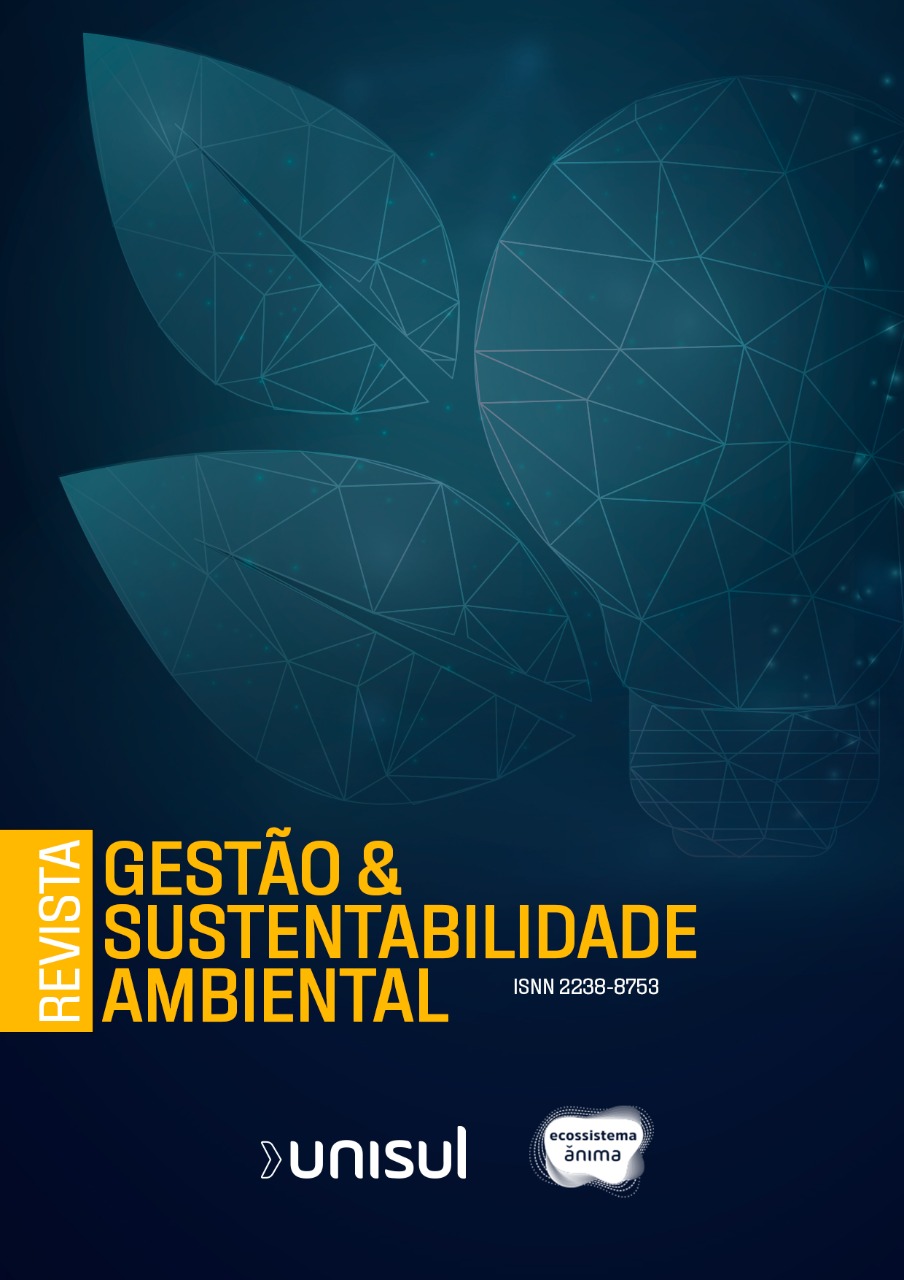RESIDUAL WASTE LANDFILL: ADVANTAGES OF IMPLEMENTING THE NATIONAL SOLID WASTE POLICY
DOI:
https://doi.org/10.19177/rgsa.v10e12021246-261Keywords:
Recyclables, Sanitation, Sustainability.Abstract
Considered a milestone for solid waste management in Brazil, the National Solid Waste Policy was instituted through Law n° 12. 305 in 2010. This law distinguishes the terms waste destination and disposal. The law states that for disposal, only materials for which there is no available reuse technology, should this option be used. In 2018, 79 million tons of waste were generated in the country, of which 72.7 million were collected. Of this amount, 59.5% was sent to landfills without any reuse. In this context, this study aimed to examine the costs for the installation of a Waste Treatment Center (WTC), composed of a sorting center for dry recyclables, a composting plant and a residual waste landfill, compared with unsegregated landfills. The study was conducted in the municipality of Uberaba and project horizon of 20 years was established. For the estimates, the area required for installation of each waste destination and disposal unit, the surface water, leachate, and gas drainage systems, as well as the treatment of the percolated liquid, were considered. To estimate the costs, the National System of Cost Survey and Index of Construction were used. In all aspects studied, the Waste Treatment Center outweighed the benefits of the unsegregated waste landfill, with a smaller area required, increased lifetime, and lower implementation cost.Downloads
Published
2021-05-31
Issue
Section
Estudos de Caso
License

O trabalho Revista Gestão & Sustentabilidade Ambiental foi licenciado com uma Licença Creative Commons - Atribuição - NãoComercial - CompartilhaIgual 3.0 Brasil.
Com base no trabalho disponível em www.portaldeperiodicos.unisul.br.
How to Cite
RESIDUAL WASTE LANDFILL: ADVANTAGES OF IMPLEMENTING THE NATIONAL SOLID WASTE POLICY. (2021). Revista Gestão & Sustentabilidade Ambiental, 10(1), 246-261. https://doi.org/10.19177/rgsa.v10e12021246-261








